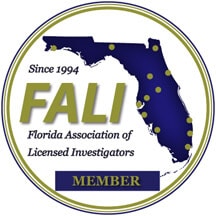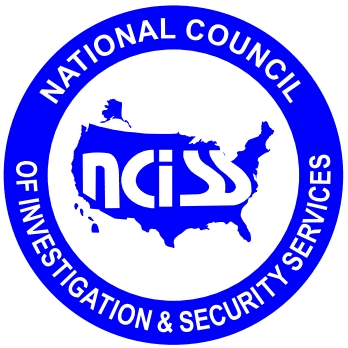Bankruptcy Records Software
#1 Bankruptcy records search software
As a collection agency, you need to be able scrub bankruptcy records in order to avoid wasting time trying to collect on uncollectible debt. Although scrubbing bankruptcy records is particularly important if you’re a third-party collections agency, even first-party collections need to be able to quickly scrub bankruptcy records when gathering case information for both legal and corporate reasons. Here’s how a bankruptcy public and private records search engine that pulls case files from a variety of sources, including the United States Bankruptcy Court, federal courts, and other national archives, can help your agency access bankruptcy records more easily.
Get bankruptcy court records with one solution
Efficiency is key to running a successful collections agency — you want to be able to quickly move accounts through collections in order to bring in more cases and maximize profit. Skip tracing debtors and scrubbing uncollectible records can be a timely process, especially when you’re manually performing individual searches on each account. Rather than spending time running each search on your own, use a public and private records search engine that allows you to perform batch processing and batch skip tracing so you can get information about all your accounts with one search.
- When you’re doing collections, it’s important to maximize efficiency so you can go handle more accounts.
- An agency that’s able to run high-volume searches at once and quickly weed out the uncollectible accounts will work more efficiently and bring in more profit.
- Instead of running each individual account through bankruptcy records scrubbing on your own time, invest in a public and private records search engine with batch skip tracing and batch processing.
Get started with Tracers
For information about how we collect, store and use your personal data, please read our Terms of Service and Privacy Policy.
Separating different types of bankruptcy records
There are different types of bankruptcy an individual may file for, and although two are the most common, you may run into other types in bankruptcy cases. It’s important to be able to separate different types of bankruptcy records because different bankruptcy filings may have different conclusions regarding whether or not someone’s still liable for their debts. To ensure you’re collecting on debts property, you need to be able to gather all the financial and case information available.
- The terms of a bankruptcy vary across different types of bankruptcy and individual bankruptcy filings.
- To accurately determine whether you can collect on debt, you need to know more than just the fact that a person has a bankruptcy filing.
- When you’re able to dig deeper into bankruptcy records with a bankruptcy records search, you’ll be able to differentiate between bankruptcy records for more effective collection.
Linking bankruptcy public records for easier scrubbing
When you’re scrubbing records, it’s extremely important that you’re scrubbing them for the right person. For example, it’s common for people to mix up two records because they belong to people with the same name. To avoid this problem and ensure you’re gathering information about the right person, use a public and private records search engine that links records between additional points such as bankruptcy public records from national archives, bankruptcy court records, and private records, rather than just linking records by name.
- Scrubbing records can be difficult because there are many people in the United States with the same name and records can get mixed up.
- When you’re scrubbing records like bankruptcy public records for any reason, you need to know you’re accessing the right records.
- Instead of just matching records using someone’s name, you can match those records with additional points in a public and private records search engine for better accuracy.
Bankruptcy processing software to scrub records
Bankruptcy scrubbing isn’t something you can just do once — you need to routinely check for records you may not be able to collect on anymore in order to maintain regulatory and legal compliance. People can file for bankruptcy at any time, so it’s possible for someone to file between the time your company first receives the records and the time your company puts in a collection request. Consistently scrubbing records with a public and private records search search engine is an easy way to avoid this problem and ensure you’re only collecting on collectible debts.
- It’s important that you have the most up-to-date information for collections, including whether people have filed for bankruptcy.
- Because people can file for bankruptcy at any time, it’s important that you’re consistently checking your records to determine if there are any new bankruptcy filings.
- The best public and private records search engine makes it easy for you to scrub your records on a routine basis.
How to view bankruptcy records online
Making sure your collection agency stays up to date on bankruptcy records and other potential problems is vital to performing efficient and compliant collections. When you need up-to-date docket information, public access to bankruptcy records for debtors, and anything else associated with collections, consider Tracers public and private records database.
Whether you’re searching directly through the Tracers website or through its partners, Tracers provides you with comprehensive information, like a complete name and social security number, on 98% of adults in the United States. With the best bankruptcy software, you can search through over 100 million bankruptcy records to understand more about someone’s financial background. You can gather bankruptcy records from district courts, as well as bankruptcy docket information from federal court records, like case files and case numbers, pulled directly from the U.S. Bankruptcy Court. You can even maximize your options with batch processing in order to save money and resources, making it easier for you to focus on collections efforts and handle more cases.
More information
What is bankruptcy records software?
As a collection agency, it’s important that you’re able to scrub bankruptcy records, whether it’s for legal or corporate reasons. A bankruptcy records software helps your agency scrub these records more easily and accurately.
Who can benefit from using bankruptcy records software?
If you’re a collection agency, whether you’re a third-party agency or an in-house collection agency, staying up to date on bankruptcy records and other potential problems is massively important. Bankruptcy records software benefits any of these collection agencies by providing you with all the information you need about your accounts.
What does bankruptcy records software do for your agency?
Bankruptcy records software allows you to maximize efficiency and profits by helping you process more records and weed out uncollectible records. It also allows you to look deeper into records with a bankruptcy filing search, as well as links records by additional points for both bankruptcy public records, bankruptcy court records, and private records, rather than just linking records by name.
What do I need to get started with using bankruptcy records software in my own agency?
When you need up-to-date information and the ability to view bankruptcy records online for debtors and anything else associated with collections, consider Tracers. With Tracers, you can search through over 100 million records to understand more about someone’s financial background, as well as maximize your options with batch processing, making it easier for you to focus on collections efforts.




